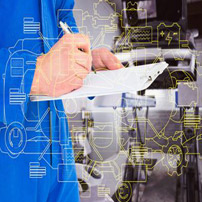Who is to Blame when a Driverless Car Crashes and Causes Injury?
March 7, 2017 With technological advances being made at a shockingly fast rate, it may come as no surprise that driverless, or robot cars, are already on American roadways. The real question is, who is to blame if a driverless car crashes? If a person is injured in a vehicular accident but cannot hold another driver accountable, then who is responsible?
With technological advances being made at a shockingly fast rate, it may come as no surprise that driverless, or robot cars, are already on American roadways. The real question is, who is to blame if a driverless car crashes? If a person is injured in a vehicular accident but cannot hold another driver accountable, then who is responsible?
Driverless cars are robotic vehicles that drive from one destination to another without human operators. There are many companies and manufacturers that have produced driverless vehicles. They include Google, Ford, BMW, Volvo, General Motors and more. The goal of driverless vehicles is to decrease automobile accidents as well as to aid with traffic control.
There have been proposals of granting legal immunity to the manufacturers of robot cars, so that they would not be held responsible if a vehicles was involved in an accident or collision. If the manufacturers of robot cars were not held responsible, the financial obligation would fall on taxpayers, the injured party and their family members. This would create an unfair burden, especially for someone who has been hurt or even killed by a driverless vehicle.
The question of liability is still developing. Many legal experts believe that liability will fall on the manufacturer of driverless vehicles, or the developers of the software programs that allow for cars to run on autopilot, without any human interference. It is unclear as to whether or not any liability would be on the shoulders of the person who owns a robot car. As these types of vehicles become more commonplace, these questions will be answered.
The American Association for Justice (AAJ) released a report that encourages the civil justice system to take the lead when it comes to safety standards and regulations for driverless vehicles. The report cites how in the past, the civil justice system has taken the front seat in determining the necessary safety rules in regard to any type of new, widespread technology that can potentially put people at risk.
The civil justice system provides people with the opportunity to reach a solution when they are harmed or injured because of another person’s malpractice, recklessness or negligence. Because a driverless vehicle cannot be held directly accountable, the civil justice system could instead allow for the injured party to seek damages against the car manufacturer.
Policymakers are aware that robot cars are already on the roads and that their presence will only increase as time goes by. Already there have been automobile accidents involving driverless vehicles. Some of Google’s self-driving cars have been in accidents, like when one crashed into the back of a bus just last year. In respect to Google’s fleet of driverless vehicles, there have been at least 13 reported crashes.
The manufacturers of these robot cars claim that most of the accidents that occur can be blamed on human error, not the autonomous (driverless) vehicles. Current statistics show that over 90% of crashes are the result of human error. Various robot car manufacturers believe that introducing more self-driving vehicles onto the roads will make them safer, because the chance of human mistake will be limited. This could be true, but there is a serious need for up-to-date safety regulations and standards to protect drivers and pedestrians who could incur damages in autonomous vehicle accidents.
The authors of the AAJ report not only encourage the civil justice system to lead the way on policy making but also hope that it works hard to protect the public as the technology continues to develop in upcoming years. Before driverless cars, certain vehicles had “autopilot features”. This meant that they could be driven manually or without a driver. Now there are robot cars that never need a driver, so the technology is not only constantly changing but it is also changing quickly.
Philadelphia Products Liability Lawyers at Galfand Berger, LLP Advocate for Victims Injured in Driverless Car Accidents
The Philadelphia product liability lawyers at Galfand Berger have successfully represented clients who have been injured by faulty or defective products. If you have any questions or concerns, an attorney at Galfand Berger, LLP can help. With offices located in Philadelphia, Reading and Bethlehem, we serve clients throughout Pennsylvania and New Jersey. To schedule a consultation, call us at 800-222-8792 or complete our online contact form.
 Google Screened
Google Screened
